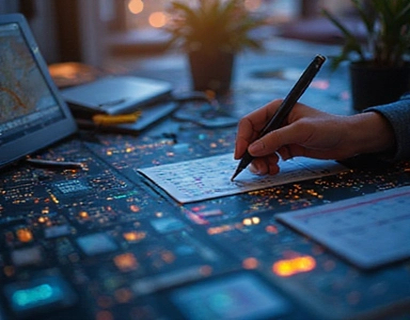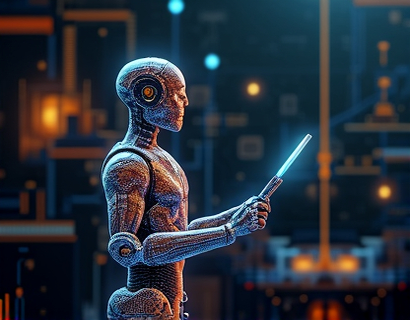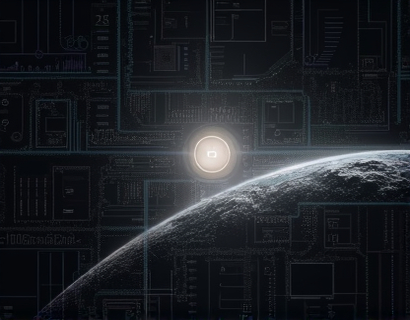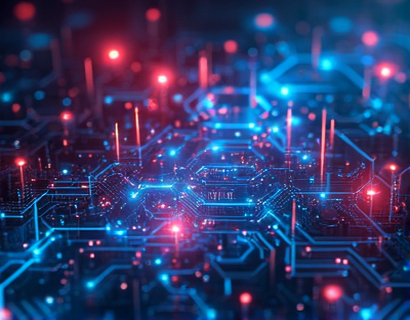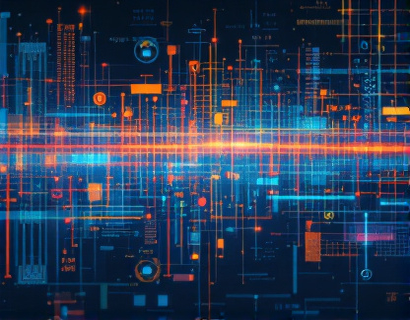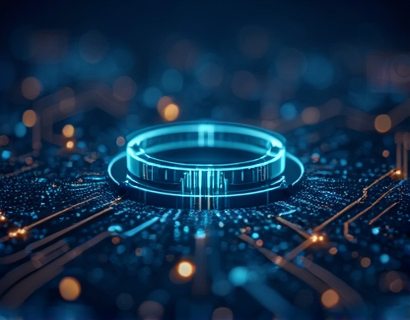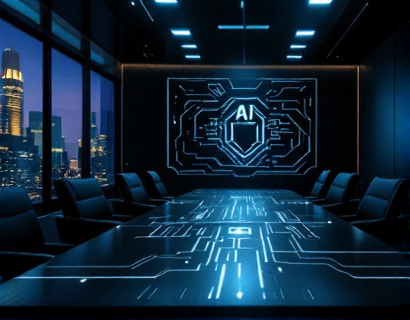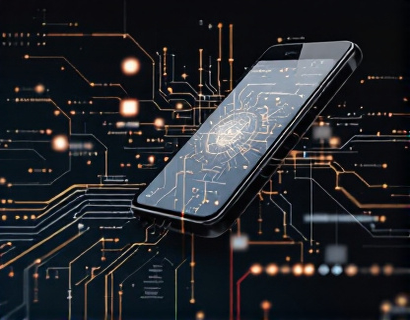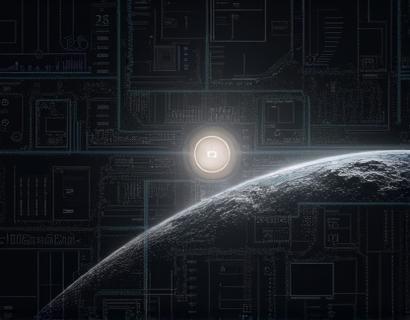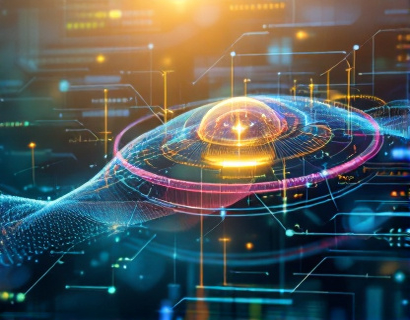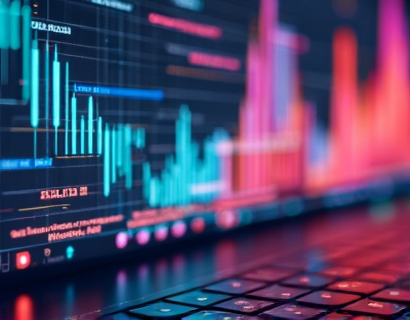Crypto AI Fusion: Revolutionizing Digital App Experiences with Advanced Technology Solutions
The integration of cryptocurrency and artificial intelligence (AI) is ushering in a new era of digital innovation, fundamentally transforming the way we interact with technology. This fusion, often referred to as Crypto AI Fusion, is not just a technological trend but a paradigm shift that promises to enhance efficiency, security, and user experience across various digital platforms. As we delve into this transformative landscape, it's essential to understand the core components and the profound impact they are having on the digital world.
The convergence of blockchain technology and AI is creating a synergy that leverages the strengths of both domains. Blockchain provides a decentralized, transparent, and secure framework for transactions and data management, while AI brings intelligent automation, predictive analytics, and enhanced decision-making capabilities. When combined, these technologies can revolutionize industries ranging from finance and healthcare to entertainment and beyond.
Enhanced Security Through Cryptographic Techniques
One of the most significant benefits of Crypto AI Fusion is the enhancement of security measures. Blockchain's inherent cryptographic techniques ensure that data is immutable and tamper-proof, providing a robust foundation for AI applications. AI algorithms can analyze vast amounts of data to detect anomalies and potential security threats in real-time, further fortifying the system against cyber attacks. This dual-layer security approach is crucial in an era where data breaches and cyber threats are increasingly common.
For instance, in the financial sector, Crypto AI Fusion can be used to create more secure trading platforms. AI-driven systems can monitor transactions for suspicious activities, while blockchain ensures that all transactions are recorded transparently and securely. This combination not only protects user assets but also builds trust in digital financial services.
Optimized User Experiences with AI-Powered Personalization
AI's ability to process and analyze large datasets enables the creation of highly personalized user experiences. In the context of Crypto AI Fusion, AI algorithms can analyze user behavior, preferences, and patterns to offer tailored recommendations and services. This level of personalization is particularly valuable in digital ecosystems where users expect seamless and customized interactions.
Consider a digital content platform that uses AI to curate content based on a user's viewing history and preferences. By integrating blockchain, the platform ensures that content creators are fairly compensated through cryptocurrency, creating a transparent and incentivized ecosystem. Users benefit from a more relevant and engaging experience, while content creators receive fair rewards for their work.
Efficient Smart Contract Execution
Smart contracts, self-executing contracts with the terms directly written into code, are a cornerstone of blockchain technology. When combined with AI, smart contracts can become even more intelligent and adaptive. AI can analyze complex scenarios and dynamically adjust contract terms based on real-time data, ensuring that agreements are executed efficiently and fairly.
In supply chain management, for example, AI-powered smart contracts can monitor the movement of goods, predict delays, and automatically adjust payment terms or delivery schedules. This not only streamlines operations but also reduces the risk of disputes and errors. The integration of AI with blockchain ensures that all parties have access to the same up-to-date information, enhancing transparency and trust.
Predictive Maintenance and IoT Integration
The Internet of Things (IoT) is another area where Crypto AI Fusion is making significant strides. IoT devices generate vast amounts of data that can be analyzed by AI to predict maintenance needs, optimize performance, and prevent failures. By leveraging blockchain, this data can be securely and transparently shared among multiple parties, ensuring that all stakeholders have access to accurate and timely information.
For instance, in industrial settings, AI-driven predictive maintenance systems can monitor the health of machinery and predict when parts are likely to fail. Smart contracts can then automatically trigger orders for replacement parts or schedule maintenance, minimizing downtime and operational costs. The use of cryptocurrency in these transactions ensures secure and efficient payment processes.
Decentralized Data Marketplaces
Crypto AI Fusion is also revolutionizing the way data is bought and sold through decentralized data marketplaces. These platforms use blockchain to create a trustless environment where data providers can sell their data directly to consumers, with AI algorithms ensuring data quality and relevance. This decentralized approach empowers individuals to monetize their data while providing high-quality datasets for AI models.
In healthcare, for example, patients can sell their medical data to research institutions, ensuring that their data is used ethically and transparently. AI can analyze this data to identify patterns and insights, accelerating medical research and leading to better healthcare outcomes. The use of cryptocurrency ensures that data transactions are secure and that providers are fairly compensated.
Challenges and Considerations
While the potential of Crypto AI Fusion is immense, there are several challenges and considerations that need to be addressed. One of the primary concerns is the regulatory landscape. As this technology evolves, governments and regulatory bodies are beginning to take notice, and navigating the legal framework can be complex. It's crucial for developers and businesses to stay informed and compliant with evolving regulations.
Another challenge is the technical complexity involved in integrating blockchain and AI. Developing robust and scalable solutions requires expertise in both domains, which can be a barrier for some organizations. However, as the technology matures, more tools and frameworks will become available, making it easier to implement these solutions.
Future Prospects and Innovations
The future of Crypto AI Fusion holds tremendous promise. As the technology continues to advance, we can expect even more innovative applications across various industries. One area of interest is the development of decentralized AI models, where AI training and inference are performed on a blockchain network. This approach can enhance privacy and security, as data remains decentralized and users have more control over their information.
Additionally, the integration of quantum computing with Crypto AI Fusion could lead to breakthroughs in areas such as cryptography and optimization problems. Quantum algorithms could potentially solve complex tasks that are currently infeasible, further enhancing the capabilities of AI and blockchain systems.
Conclusion
The fusion of cryptocurrency and AI is not just a technological advancement but a transformative force that is reshaping the digital landscape. By combining the security and transparency of blockchain with the intelligence and efficiency of AI, we are witnessing the creation of more secure, personalized, and efficient digital experiences. As this field continues to evolve, it's essential for tech enthusiasts and professionals to stay informed and embrace the opportunities that Crypto AI Fusion presents.



